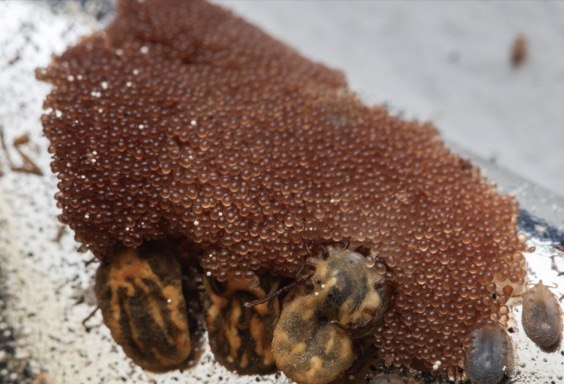Being a homeowner means dealing with some unwanted guests. We’re not talking about strange people in your crawlspace. Instead, we are discussing annoying insects you might encounter in your home. Personally, I detest having earwigs, spiders, or ants in my house.
The Reality of Insect Intrusions
Unfortunately, there’s nothing we can do to stop them completely. These small critters don’t see it as a planned home invasion. It’s just where they should be. While I’ve learned to tolerate most insects in my home, ticks are one pest I simply cannot stand.
The Dreaded Tick Problem
I bet no one finds ticks enjoyable. These disgusting bugs spread diseases quickly. It’s essential to know how to identify tick egg clusters and what to do if you find them in your grass. Here’s some useful information to help with your urgent questions.
Identifying Tick Eggs
Tick eggs are tiny, about the size of a poppy seed (0.5mm in diameter). They are almost invisible to the human eye. These eggs are translucent and often oblong or pear-shaped. You’ll usually find them in clusters attached to plants, leaves, or other surfaces close to the ground.
As they age, tick eggs become more opaque and smoother. They look shiny and may be light brown or pale yellow.
What to Do If You Discover Tick Eggs
Panic might set in when you find what looks like a clutch of tick eggs. This is a major issue since ticks can transmit diseases like Lyme disease and Rocky Mountain Spotted Fever.
For a correct diagnosis and guidance, consult a local veterinarian or a professional pest management specialist.
Keeping Your Yard Tick-Free
Nobody likes finding tick eggs in their backyard. It’s essential to take action to reduce the possibility of their presence.
Remove Deer-Attracting Plants
Ticks love to feed on deer. Removing plants that attract deer can help. Plants like tulips, azaleas, and hostas should be avoided. Instead, grow herbs and plants that repel ticks, such as rosemary, mint, and chrysanthemums.
Maintain Your Yard
Keep your yard well-groomed. Remove any foliage that could serve as a tick hiding place. Also, keep wood piles off the ground. Ticks like to lay their eggs in moist, dark places.
Use Natural Repellents
Using natural tick repellents and taking steps to keep small mammals like mice and rabbits out of your garden will help maintain tick-free yards. Insecticides are an alternative if necessary, but use them cautiously to preserve the habitat.
Did you know about tick eggs? Share this information with your family and friends if you think it would benefit them.
Related Articles
Girls Visit Dad’s Grave to ‘Show’ Their New Dresses as He Asked, See 2 Boxes with Their Names
Read more
My husband received this photo from me, then immediately wants a divorce
Read more
You may also like
Advertisement
About Daniel Stone



